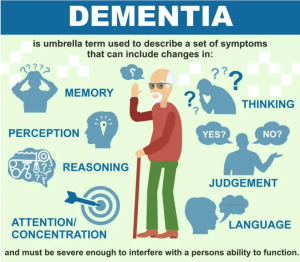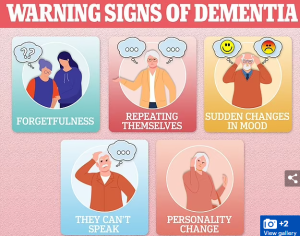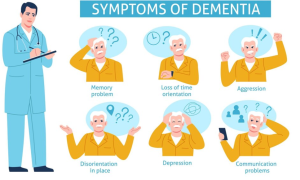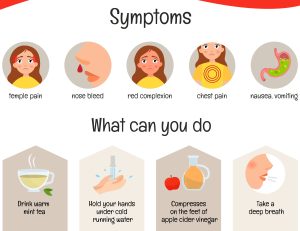Veteran Nollywood actress, Joke Silva, has spoken about how ageing has affected her husband of nearly four decades, Olu Jacobs.
The actress who, along with her aged husband, were once described as Nollywood’s ‘power couple,’ spoke about her husband’s health challenges during a media interview with actress Nancy Isime.
According to reports, Olu Jacobs has been battling dementia for some time.
During the interview, JS said said her husband’s poor health had changed him significantly, and that Olu Jacobs is no longer the man she walked down the aisle with 37 years ago.
“It hasn’t been easy. There was a point of acceptance for me that everything happening is reality.
“It is like the person I married, 80 per cent of the time, is no longer there.
“But the thing is this: when he was there, he was an incredible father to his children and an amazing husband. He was practically my best friend.”
Silva said despite her husband’s health challenge, she has not stopped loving him.
“The husband I knew is no longer there for me. This man that is here is someone I still love, but love in a different way,” she said.
Dementia defined
 According to the National Institutes of Health (NIH), dementia is the loss of cognitive functioning — thinking, remembering, and reasoning — to such an extent that it interferes with a person’s daily life and activities.
According to the National Institutes of Health (NIH), dementia is the loss of cognitive functioning — thinking, remembering, and reasoning — to such an extent that it interferes with a person’s daily life and activities.
dementia is not a normal part of aging and many people live into their 90s and beyond without any signs of dementia
The agency says some people with dementia cannot control their emotions, and their personalities may change.
 “Dementia ranges in severity from the mildest stage, when it is just beginning to affect a person’s functioning, to the most severe stage, when the person must depends completely on others for basic activities of daily living, such as feeding oneself,” NIH says.
“Dementia ranges in severity from the mildest stage, when it is just beginning to affect a person’s functioning, to the most severe stage, when the person must depends completely on others for basic activities of daily living, such as feeding oneself,” NIH says.
The World Health Organisation states that dementia affects millions of people globally and is more common as people grow older; noting that “about one-third of all people age 85 or older may have some form of dementia.”
Experts, however, agree that dementia is not a normal part of aging and that many people live into their 90s and beyond without any signs of dementia.
There are several different forms of dementia, including Alzheimer’s disease, which is the most common.
“Alzheimer’s is a brain disease that causes a slow decline in memory, thinking and reasoning skills,” says the NIH.
Age of onset
The NIH says, for most people with Alzheimer’s — those who have the late-onset variety — symptoms first appear in their mid-60s or later.
“When the disease develops before age 65, it’s considered early-onset Alzheimer’s, which can begin as early as a person’s 30s, although this is rare,” NIH says.
 Signs and symptoms
Signs and symptoms
The experts at NIH say there are 10 warning signs and symptoms and that if you notice any of them, don’t ignore them. Rather, schedule an appointment with your doctor. The signs and symptoms can vary depending on the type and may include:
-
- Experiencing memory loss, poor judgment, and confusion
- Difficulty speaking, understanding and expressing thoughts, or reading and writing
- Wandering and getting lost in a familiar neighborhood
- Trouble handling money responsibly and paying bills
- Repeating questions
- Using unusual words to refer to familiar objects
- Taking longer to complete normal daily tasks
- Losing interest in normal daily activities or events
- Hallucinating or experiencing delusions or paranoia
- Acting impulsively
- Not caring about other people’s feelings
- Losing balance and problems with movement
What you can do
Experts say although medics don’t yet know for certain what, if anything, can prevent dementia, they advise that, in general, leading a healthy lifestyle may help reduce risk factors.
These include:

- Control high blood pressure — Treating high blood pressure with medication and healthy lifestyle changes, such as exercising and quitting smoking, may help reduce the risk of dementia.
- Manage blood sugar — Making healthy food choices, getting regular exercise, stopping smoking, and checking glucose levels can help manage blood sugar.
- Maintain a healthy weight — Being active and choosing healthy foods can help maintain a healthy weight.
 Eat a healthy diet — Aim for a mix of fruits and vegetables, whole grains, lean meats and seafood, unsaturated fats such as olive oil, low-fat or nonfat dairy products, and limit other fats and sugars.
Eat a healthy diet — Aim for a mix of fruits and vegetables, whole grains, lean meats and seafood, unsaturated fats such as olive oil, low-fat or nonfat dairy products, and limit other fats and sugars.
- Keep physically active — Physical activity has many health benefits, such as helping to prevent being overweight and having obesity, heart disease, stroke, and high blood pressure.
- Stay mentally active — Lots of activities can help keep your mind active, including reading, playing board games, crafting or taking up a new hobby, learning a new skill, working or volunteering, and socializing.
- Stay connected with family and friends. Connecting with people and engaging in social activities can prevent social isolation and loneliness, which are linked to higher risks for cognitive decline and Alzheimer’s disease.
- Treat hearing problems — Hearing loss may affect cognition and dementia risk in older adults and can make it more difficult to interact with others. Protect your ears from loud sounds to help prevent hearing loss and use hearing aids if needed.
- Take care of your mental and physical health — This includes getting your recommended health screenings, managing chronic health issues such as depression or high cholesterol.
- Sleep well — Sleeping well is important for both your mind and body. Try to get seven to eight hours of sleep each night.
- Prevent head injury Take steps to prevent falls and head injury. Also, wear seatbelts and helmets to help protect you from concussions and other brain injuries.
- Drink less alcohol
- Stop tobacco use


